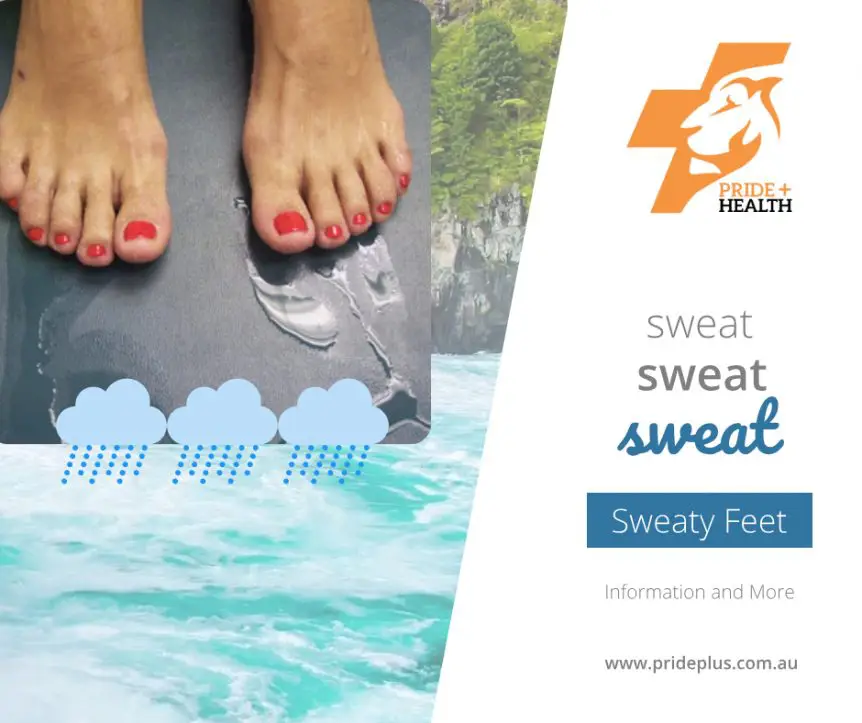Sweat, sweat, sweat
Trivia buffs, name the sweatiest part of the body?
Probably not that hard to guess. Feet.
Try this: how many sweat glands are there in the feet?
100? 200?
Keep guessing!
What is sweat?
Sweat is mostly water, but contains some salts and also ammonia and urea, which are produced by the body when it breaks down proteins from the foods you eat.
So, why do feet sweat?
In relation to feet, sweat is most prominent when exercising, participating in sports or when wearing restrictive shoes that have no orthotic insoles or socks – your feet will not receive enough air, making it hard for foot sweat to evaporate.
Three primary functions:
- Heat regulation – the evaporation of sweat on the skin has a cooling effect.
- Excretion – a way for the body to get rid of water and salts.
- Skin protection – as sweat is slightly acidic, sweat helps protect the skin from some germs and helps keep the skin supple.
Why do I seem to sweat more than others?
Even though we’ve all got the same number of sweat glands in our feet, some of us sweat way more than others. If you’re a prolific sweater, you’ll know that it often feels embarrassing to be sweating when no one else seems to be even the tiniest bit damp.
There are many factors that can influence how much we sweat;
- Heat – helps reduce the body temperature
- Strenuous activity – sweat is a common partner to exercise
- Emotion (fear, stress, anxiety and pain)
- Hormonal changes. Teenagers and pregnant women are especially prone to sweaty feet
- Eating spicy foods
- Damage to the sympathetic nerves, for example, through sports injuries
- Footwear – synthetic materials and restrictive fitting shoes make it hard for sweat to evaporate
- Side effects of some medications
- Generalised excessive sweating (hyperhidrosis)
What is hyperhidrosis?
Are you a one-in-twenty? That’s how many of us are struggling with hyperhidrosis or excessive sweating. It can be a persisting, embarrassing and difficult to manage problem, occurring in summer and winter and when the body does not need cooling.
What makes feet smell (bromhidrosis)?
Sweat itself doesn’t smell bad when produced, the smell comes from skin bacteria multiplying in their ideal breeding environment.
When sweat remains on the skin and in your shoes with non-breathable linings, the resultant smell can take you right back to memories of school change rooms or footy locker rooms!
Feet are more likely to smell when:
- You are on your feet all day
- You’re under stress
- Your feet are enclosed in shoes and socks all day
- You have poor hygiene
- You have bacterial, fungal or yeast overgrowth
But wait, there’s more…
That’s right. In addition to sweaty and smelly feet making you feel embarrassed or isolated, there is also the problem of associated disease.
The dampness that is created in your shoes and socks can potentially increase the incidence of tinea pedis (also known as athlete’s foot).
Bacteria may also enter through the cracked skin or untreated athlete’s foot. This can occasionally cause more serious infection of the feet or leg, possibly leading to cellulitis.
How can I manage my sweaty and or smelly feet?
According to podiatrists in Melbourne, here is how you can manage feet that may experience excessive sweat and uncomfortable smells.
- Wash feet regularly with soap-free wash, balanced to the pH of our skin (pH 5.5)
- Dry feet thoroughly
- Keep toenails short and clean
- See your podiatrist to remove any hard skin. Areas of foot callus can become soggy when damp, making a great home for germs to grow
- Footwear… AVOID tight fitting shoes and some synthetic materials. Use custom foot orthotic insoles to reduce the risk of foot injury and improve performance.
- Wear fresh socks daily
-
- You might need to alternate socks throughout the day
- Wear moisture wicking socks such as cotton, bamboo, merino wool or specialist technical sock blends
- Silver-lined socks use real silver embedded in the fabric. This has an antimicrobial (anti-smell!) effect
- Antiperspirant can help reduce sweating from eccrine glands by temporarily plugging the sweat ducts.
- Antifungal (terbinafine) spray if you have symptoms of tinea pedis
- Sunlight can be a really useful tool to kill off some of the bugs that cause smelly feet and smelly shoes. Simply remove the liners of your shoes, and leave the shoes and liners in the sun for an hour or two on a lovely sunny Melbourne day
Visiting a Podiatrist in Melbourne
If you struggle with sweaty feet, smelly feet or need some quality advice book in with your nearest PridePlus Podiatrist. Podiatry clinic locations in Melbourne and bookings online here.




